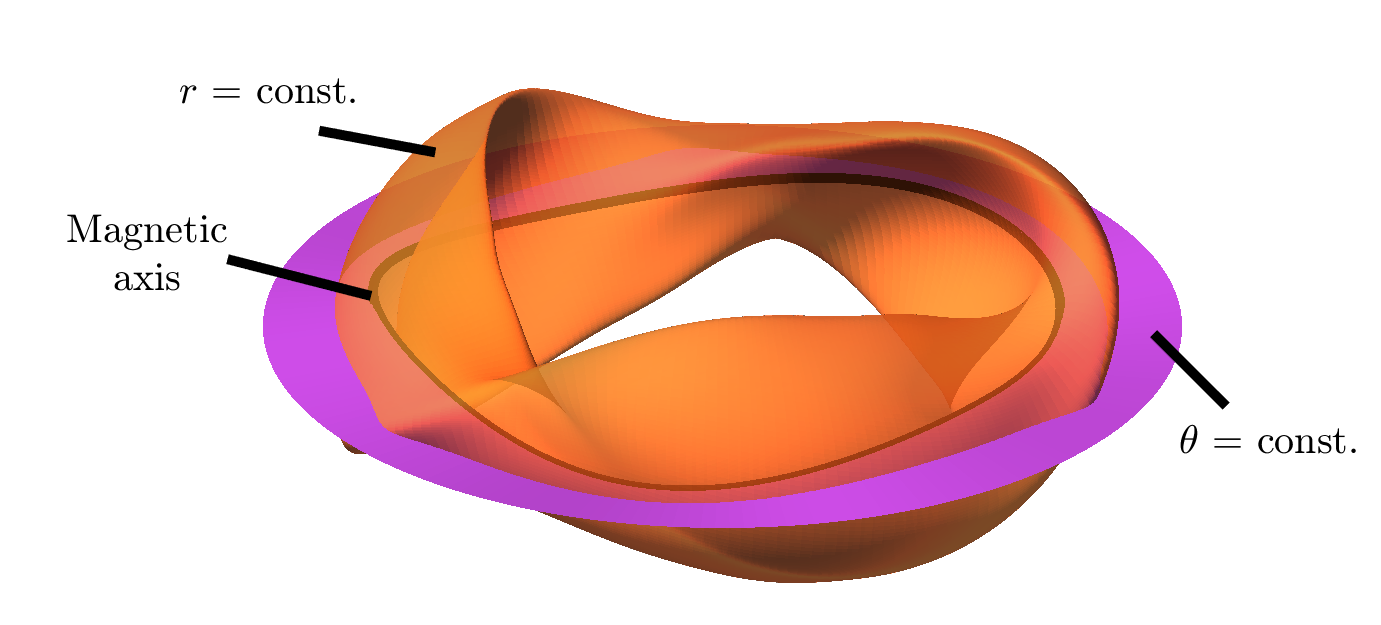Active Research Projects
Energetic particle transport in stellarators
One of the primary requirements for an effective fusion power plant (FPP) is the sufficient confinement of the fusion products, the energetic alpha particles produced in the deuterium-tritium reaction. These energetic particles must be confined sufficiently long such that they can deposit their energy in the thermal bulk and maintain the fusion burn. Furthermore, rapid losses must be avoided to mitigate destruction of the material walls of the fusion device.
Shape optimization of stellarator magnetic fields
Stellarators possess an immense amount of freedom in the choice of magnetic field. Modern stellarators are designed using numerical optimization techniques to find configurations with improved confinement properties consistent with engineering constraints. Navigating through the associated high-dimensional, non-convex design space is practically challenging. Our research focuses on the development of improved algorithms for efficient optimization techniques, such as through the deployment of adjoint methods.
News
Team members present their research at the Hidden Symmetries Meeting
Last week, members of the Paul Research Group showcased their work at the Hidden Symmetries and Fusion Energy Team Meeting 2024.
65th Annual Meeting of the APS Division of Plasma Physics
Postdoc position available
The Stellarator Theory & Computation group in the Department of Applied Physics and Applied Mathematics at Columbia University is hiring a Postdoctoral Research Scientist. The work scope will include reduced model development, software development, and high-fidelity modeling of energetic particles in stellarator reactor concepts. See a more detailed project description below.
